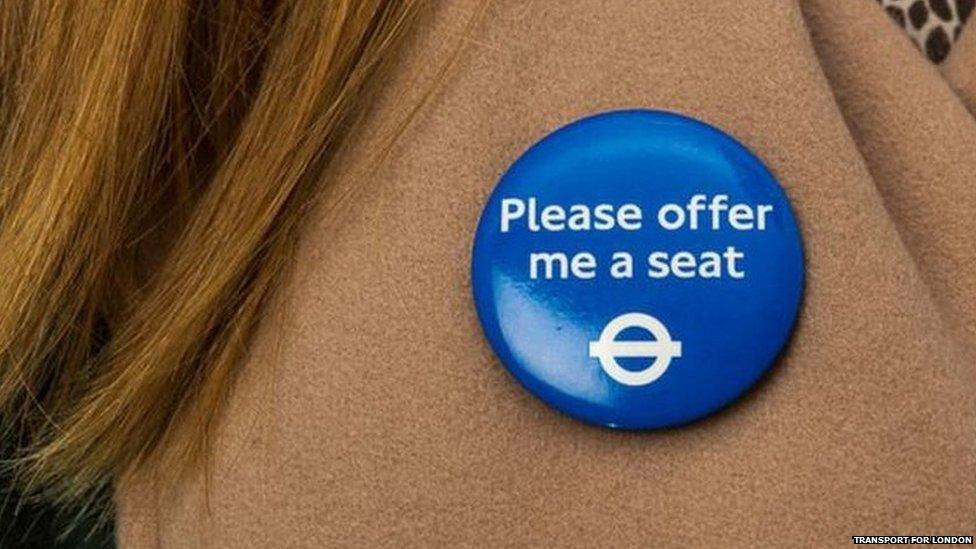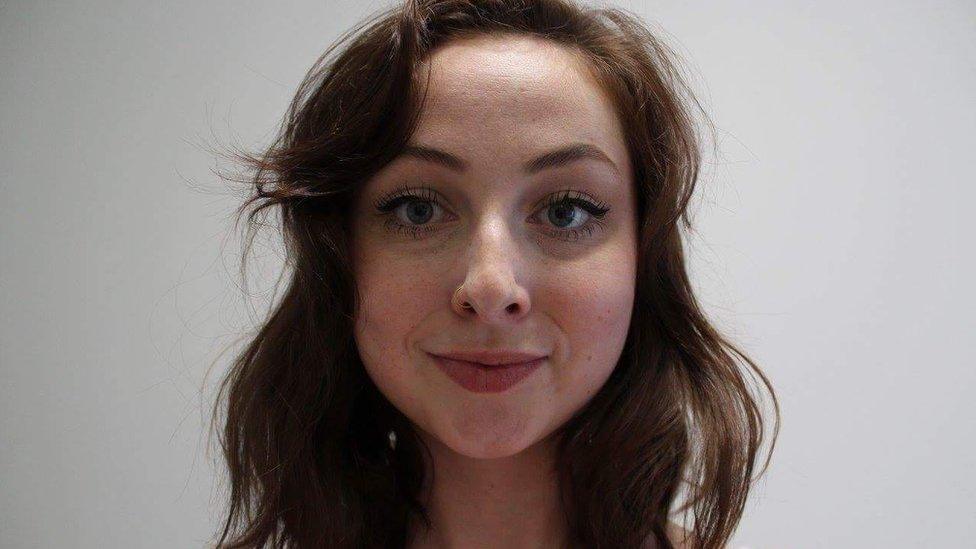Are new Tube badges for 'hidden' disabilities working?
- Published

A new badge created by Transport for London (TfL) for people with hidden illnesses and disabilities hasn't been as successful as hoped, according to one user who's already tried it out.
Amy, who has lupus, has been trialling it and says people haven't really noticed her wearing it.
She's told Newsbeat that she's been trying out the "please offer me a seat" badge for the last month.
"The experience hasn't been as positive as I'd hoped," she says.
"I've only been offered a seat once."
Amy, 24, has to take the tube to get to uni in London, where she studies architecture.
"Lupus is an auto-immune condition where my immune system attacks my body instead of fighting illnesses and infections," she says.

"On a daily basis I struggle with fatigue and pain. I take a lot of medication to combat the symptoms but I also get side-effects from the medications, which are debilitating."
She says she hopes that now the badges are coming out of their trial stage and being promoted, more people will consider people like her wearing the badges.
"Most of the time people on the tube are looking down at their phones, a book or their feet. They're not paying attention to the people standing in front of them.
Transport for London has posted a tweet giving users more info., external
"There's a reason for me to wear the badge. They're probably in their mind thinking, 'Why is she wearing that badge? Why should I offer my train seat to someone who looks fine?'"
Amy has told Newsbeat that more needs to be done to educate people about how hidden disabilities work.
"There's a misunderstanding. People can look at me and I look as healthy as any other 24-year-old and they see the badge but they're not making that connection.
"If I walked onto a train with a crutch or a wheelchair, people would be sympathetic and move out the way or offer me a seat, but because they can't see anything they can't even connect to the fact that I might need help."
The TfL "please offer me a seat" badge and card can be used to alert passengers to those that are less able to stand.
The system will be based on trust, just like the existing "baby on board" badges and are available online, external.
Since the badge has launched, Amy says she's happier seeing it in action and is more positive it will work.
"I have every faith that now the badges have been fully launched, and wider audiences reached, there will be much more understanding of what exactly they are and why people are wearing them.
"I hope that the publicity can ease the lives of more people like myself who find it so painful and tiring to be standing when they shouldn't be."
Find us on Instagram at BBCNewsbeat, external and follow us on Snapchat, search for bbc_newsbeat, external